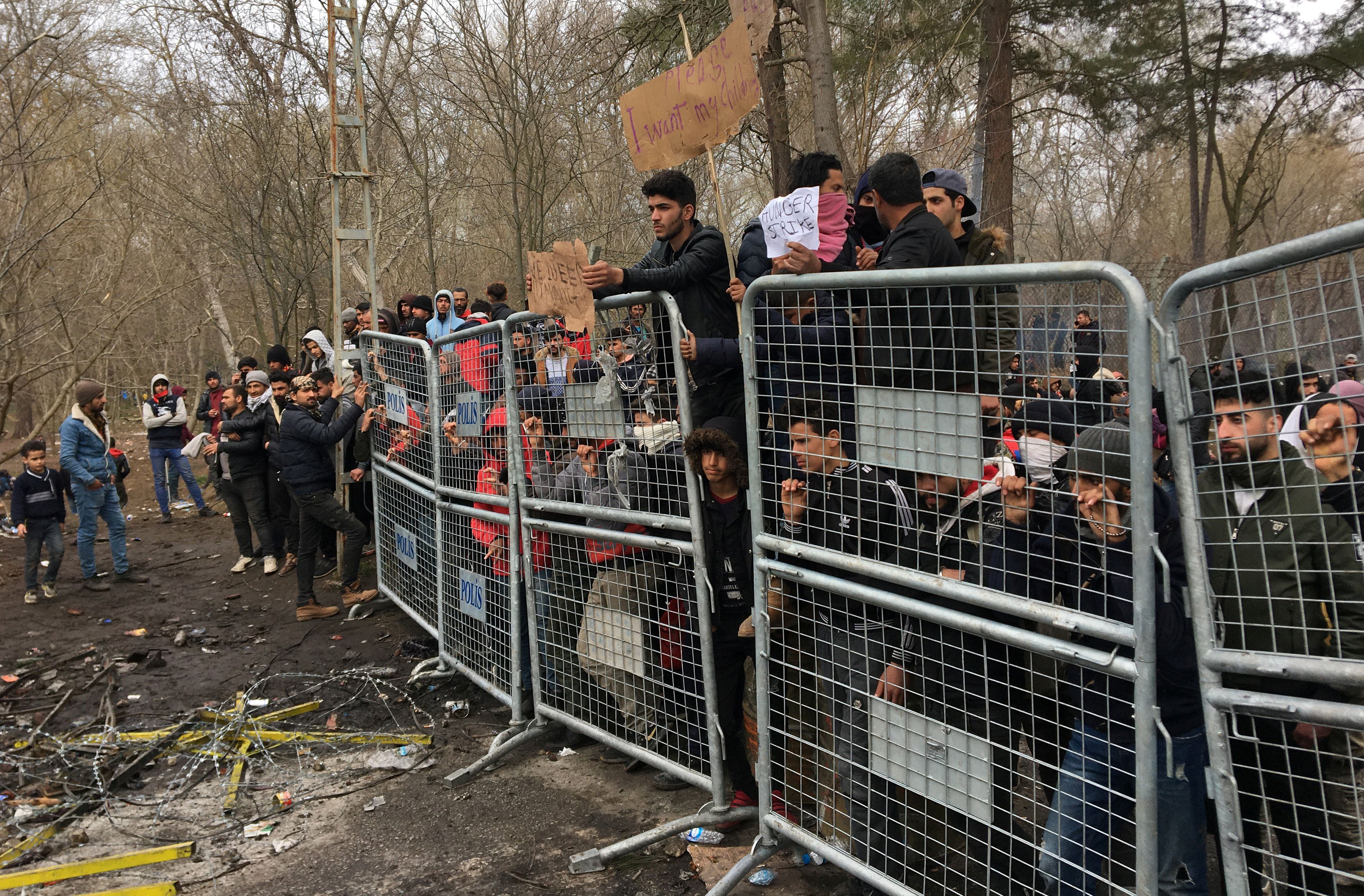October 19, 2020
Build that wall... in Greece: The Greek government has finalized plans to build a wall along part of its eastern border with Turkey to prevent migrants from staging mass crossings to reach European Union territory. The move follows a March standoff between Athens and Ankara when Turkish President Recep Tayyip Erdoğan declared he was "opening" the border because Turkey could no longer cope with so many migrants fleeing Syria. Since then, migrant flows via Turkey to the EU have declined dramatically due to the coronavirus pandemic and tougher policing, but Greeks and Turks (as always) remain at odds over what to do with the migrants: Greece wants Turkey to do more to stop migrants crossing, while Turkey says Greece is sending back migrants who arrive at Greek islands in the Aegean Sea. As the two sides continue to bicker over this issue — and over energy rights in the Eastern Mediterranean — the only thing that's clear is that Greece won't demand that Turkey pay for the wall.
China's economic recovery: As most of the rest of the world grapples with a pandemic-fueled recession, the country where COVID-19 began is doing quite well. China's GDP grew 4.9 percent in the third quarter compared with the same period in 2019. That's slightly less than expected but still an impressive feat for a country whose economy contracted by a whopping 6.8 percent during the first quarter as China shut down the entire city of Wuhan and halted most economic activity to contain the coronavirus. Can Chinese consumers sustain the economic recovery — until now largely driven by a massive government stimulus program for state-controlled firms and online shopping — by spending more on brick-and-mortar retail and services? In the longer term, we're watching to see how the world's second largest economy will deal with long-term declining demand for its products in many of its major export markets.
A secret meeting in Damascus: The Wall Street Journal has reported that Kash Patel, the Trump administration's top counterterrorism official, recently traveled to Syria for secret talks with an unidentified official representing the Bashar al-Assad government. If true, it's the first known meeting between a senior US official and the Assad regime since the start of Syria's civil war a decade ago. The US halted diplomatic relations with Syria in 2012 in response to Assad's brutal crackdown on Syrian protesters and civilians. Patel's reported goal in Damascus was to win the release of some or all of (at least) six Americans held hostage by Assad's government. Trump's supporters will say this effort is a reminder that the president will talk with anyone to advance US interests, while his critics will call it a cynical last-minute attempt to boost his re-election chances. But we're watching this story, not to judge its political motivations or implications, but to see whether these talks can reunite hostages with their families.More For You
Ian Bremmer sits down with former US Ambassador to NATO Ivo Daalder to unpack a historic shift in the transatlantic alliance: Europe is preparing to defend itself without its American safety net.
Most Popular
Think you know what's going on around the world? Here's your chance to prove it.
U.S President Donald Trump, U.S. Vice President JD Vance, and U.S. Secretary of State Marco Rubio pose for a family photo with other representatives participating in the inaugural Board of Peace meeting, at the U.S. Institute of Peace in Washington, D.C., U.S., February 19, 2026.
REUTERS/Kevin Lamarque
Argentina, Armenia, Belarus, Egypt, Indonesia, Jordan, Pakistan, Paraguay, Vietnam – to name only a few.
A poster featuring Andrew Mountbatten-Windsor, formerly known as Prince Andrew, is installed on a sign leading to the parking area of the Sandringham Estate in Wolferton, as pressure builds on him to give evidence after the U.S. Justice Department released more records tied to the late financier and convicted sex offender Jeffrey Epstein, in Norfolk, Britain, February 5, 2026.
REUTERS/Isabel Infantes
British police arrested former Prince Andrew Mountbatten-Windsor today over allegations that in 2010, when he was a UK trade envoy, he shared confidential government documents with convicted sex offender Jeffrey Epstein.
© 2025 GZERO Media. All Rights Reserved | A Eurasia Group media company.
